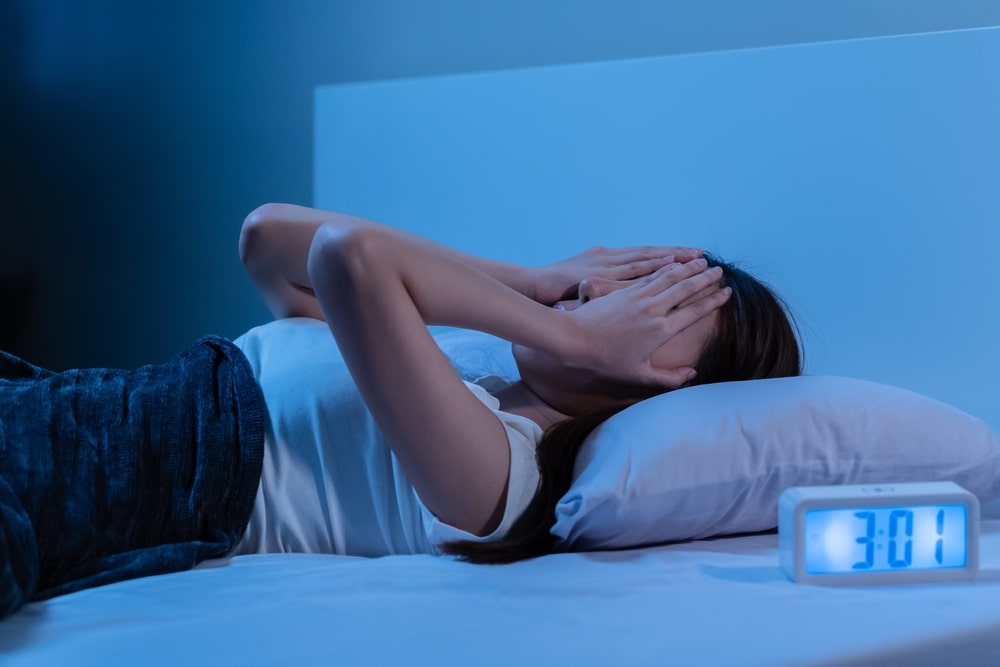Anxiety is a normal emotion and a healthy reaction to stress. According to the Mayo Clinic, having occasional feelings of anxiety is an unavoidable part of life. The medical definition of anxiety provided in the Merriam-Webster Dictionary is an “overwhelming sense of apprehension and fear often marked by physical signs (such as tension, sweating, and increased pulse rate), by doubt concerning the reality and nature of the threat, and by self-doubt about one’s capacity to cope with it.” While fleeting anxiety is unavoidable, it is atypical to experience persistent and debilitating symptoms of anxiety. An individual may be struggling with an anxiety disorder when pervasive anxiety interferes with his or her ability to function in daily life. There are several distinct types of anxiety disorders listed in the Diagnostic and Statistical Manual of Mental Disorders, Fifth Edition (DSM-5). According to Johns Hopkins Medicine anxiety disorders affect up to 18% of the population, making it the most common mental health condition in the United States.
How To Help
It can be difficult to witness a loved one struggle with an anxiety disorder, and even more challenging to decipher the best ways to offer meaningful support. Although every individual is unique, with nuanced needs, and the dynamics of each relationship are distinct, consider offering your support through the following suggestions:
- Educate yourself: Learn as much as you can about anxiety disorders, including common signs and symptoms, treatment options, long-term prognosis, etc.
- Gently encourage your loved one to practice healthy daily habits, even if it is simply through role modeling: Cultivating your own healthy habits can be mutually beneficial, be sure to:
- Prioritize sleep hygiene: Poor sleep habits can affect your circadian rhythm (sleep-wake cycle), which can have a negative impact on your mood.
- Engage in physical activity and exercise regularly: Exercising is one of the body’s natural ways of releasing endorphins, which help to reduce pain and increase pleasure, making you feel happier and enhancing your overall mood.
- Eat nutritiously: Food is the fuel for your body, and what you eat plays a large role not only in the physical health of your body but also in your mental health.
- Practice mindfulness: Techniques like meditation and deep breathing can improve one’s state of mind and outlook on life. Research has found that practicing deep breathing exercises can effectively help with relaxation, stress management, control of psychophysiological states, and improve organ function.
- Maintain open lines of communication: Create an emotionally safe environment for your loved one to share and listen.
- Be active in their treatment process: Treatment plans for anxiety disorders may include psychotherapy and/ or medication, which involves attending several different appointments. Offer your support by accompanying them to doctor visits or therapy sessions and waiting for them until their appointment is over.
It is important to bear in mind that recovering from an anxiety disorder does not necessarily have a linear trajectory. Acting as a reliable and consistent source of support through the various ups and downs that are inevitable with anxiety disorders, can help your loved one remain more positive, stick with their treatment plan, and ultimately enhance their quality of life.
Treatment In Calabasas
Calabasas is a city in California. It is a well-known suburb of Los Angeles, located west of the San Fernando Valley and north of the Santa Monica Mountains. Over the past decade, the city of Calabasas has grown in its reputation for luxury as well as for privacy which makes it a hidden gem for residential living for society’s elite, and one of the most desirable destinations in Los Angeles County. It is also home to a plethora of highly qualified mental health clinicians providing an array of therapeutic services and treatment options.
The information above is provided for the use of informational purposes only. The above content is not to be substituted for professional advice, diagnosis, or treatment, as in no way is it intended as an attempt to practice medicine, give specific medical advice, including, without limitation, advice concerning the topic of mental health. As such, please do not use any material provided above to disregard professional advice or delay seeking treatment.


